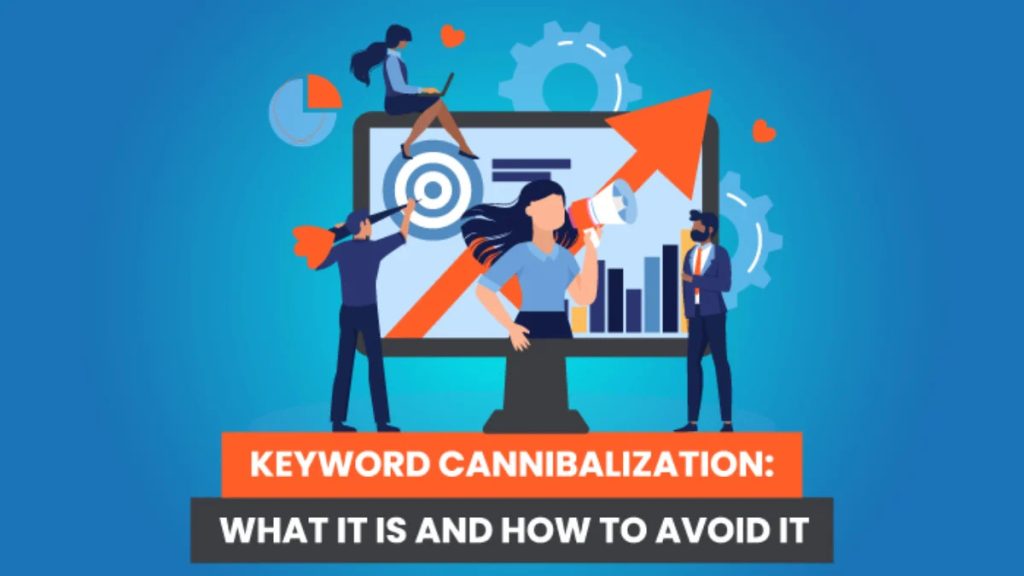
How to Avoid Keyword Cannibalization in Amazon Listings
Introduction
Keyword cannibalization can dilute your Amazon SEO and advertising efforts, but with strategic optimization, you can strengthen visibility, reduce wasted budget, and boost conversions.

1. Understand What Keyword Cannibalization Really Means
a. Internal PPC cannibalization:
This happens when different campaigns or ad groups compete for the same keywords—like running both manual and automatic campaigns with overlapping terms. It fragments clicks, obscures data, and inflates cost per click (CPC).
b. Sales cannibalization:
Here, you pay for a PPC ad targeting keywords for which your product already ranks organically—causing unnecessary ad spend.
Understanding these distinctions is key to crafting efficient listings and ad strategies.
2. Structural Tactics — Avoiding Internal Keyword Overlap
Use separate campaign structures: Create Single Product Ad Groups (SPAGs) or separate campaigns per product to minimize overlap.
Leverage negative keywords: If a keyword is used in one campaign, mark it negative in another—especially when balancing manual vs. automatic campaigns.
Experiment with match types: Assign broad, phrase, or exact match types to different campaigns to finely control keyword distribution.
3. Avoiding Sales Cannibalization (Paid vs. Organic)
When your product already ranks high organically, running PPC for the same keyword can reduce ROI. Instead:
Evaluate your organic ranking first. If you’re ranked in top positions, consider pausing or reducing your ad presence on that keyword.
Allocate PPC budget strategically. Use paid ads to target underperforming or low-ranking keywords instead.
Monitor search term reports to spot where PPC is cannibalizing organic performance.
Consider brand-defense only when warranted. While bidding on branded terms can protect your share of voice, weigh that against the cost of cannibalization.

4. Enhance Visibility Without Overlap (SEO-First Strategies)
Conduct thorough keyword research: Identify unique, high-value long-tail phrases using research tools or Amazon’s auto-suggestions.
Avoid repetitive keyword use: Amazon only needs a keyword to appear once in a listing to register value. Repeating it doesn’t boost SEO and can clutter copy.
Utilize backend search terms strategically: Use synonyms or alternate spellings here—but avoid duplicating keywords already in titles or descriptions.
5. Leverage Advanced Tools & Reports
Use reporting platforms that show when multiple keywords trigger for the same search, helping you optimize campaign structure.
Explore PPC tools that help avoid ad placements for keywords where you already rank well organically, freeing budget for other products.
6. Summary: Action Plan to Steer Clear of Cannibalization
| Strategy | Focus Area | Benefit |
|---|---|---|
| Separate campaigns/SPAGs | Internal PPC overlap | Clearer data, less ad spend |
| Negative keywords | Cross-campaign blocking | Prevents unnecessary overlap |
| Monitor organic vs. paid | Sales cannibalization | Smarter budget allocation |
| Keyword research via tools | Listing SEO | Enhanced visibility with uniqueness |
| Reporting tools | Optimization insights | Smarter, data-driven adjustments |

Conclusion
Avoiding keyword cannibalization on Amazon is all about clarity—structural clarity in campaigns, strategic clarity in keyword use, and data-driven clarity in your spending. By segmenting your campaigns, tailoring your targeting, and prioritizing underperforming areas, you’ll serve both Amazon’s A10 algorithm and your bottom line more effectively.














